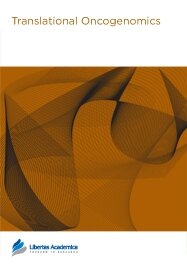

Publication Date: 29 May 2008
Journal: Translational Oncogenomics
Citation: Translational Oncogenomics 2008:3 137-149

The myelodysplastic syndromes (MDS) are clonal stem cell disorders, characterized by ineffective and dysplastic hematopoiesis. The genetic and epigenetic pathways that determine disease stage and progression are largely unknown. In the current study we used gene expression microarray methodology to examine the gene expression differences between normal hematopoietic cells and hematopoietic cells from patients with MDS at different disease stages, using both unselected and CD34+ selected cells. Significant differences between normal and MDS hematopoietic cells were observed for several genes and pathways. Several genes promoting or opposing apoptosis were dysregulated in MDS cases, most notably MCL1 and EPOR. Progression from RA to RAEB(T) was associated with increased expression of several histone genes. In addition, the RAR-RXR pathway, critical for maintaining a balance between self-renewal and differentiation of hematopoietic stem cells, was found to be deregulated in hematopoietic cells from patients with advanced MDS compared to patients with refractory anemia. These findings provide new insights into the understanding of the pathophysiology and progression of MDS, and may guide to new targets for therapy. Taken together with previous published data, the present results also underscore the considerable complexity of the regulation of gene expression in MDS.
PDF (2.33 MB PDF FORMAT)
RIS citation (ENDNOTE, REFERENCE MANAGER, PROCITE, REFWORKS)
BibTex citation (BIBDESK, LATEX)
XML
PMC HTML

As an author of a review published in Translational Oncogenomics, I was impressed by the prompt processing and speed of publication. The entire submission, review and publication process was easy, quick and pleasant. The comments from reviewers and associate editor were high quality, scientifically deep and objective. It was a great pleasure to cooperate with such qualified and friendly team. I highly recommend publication in Libertas Academica journals.
Facebook Google+ Twitter
Pinterest Tumblr YouTube